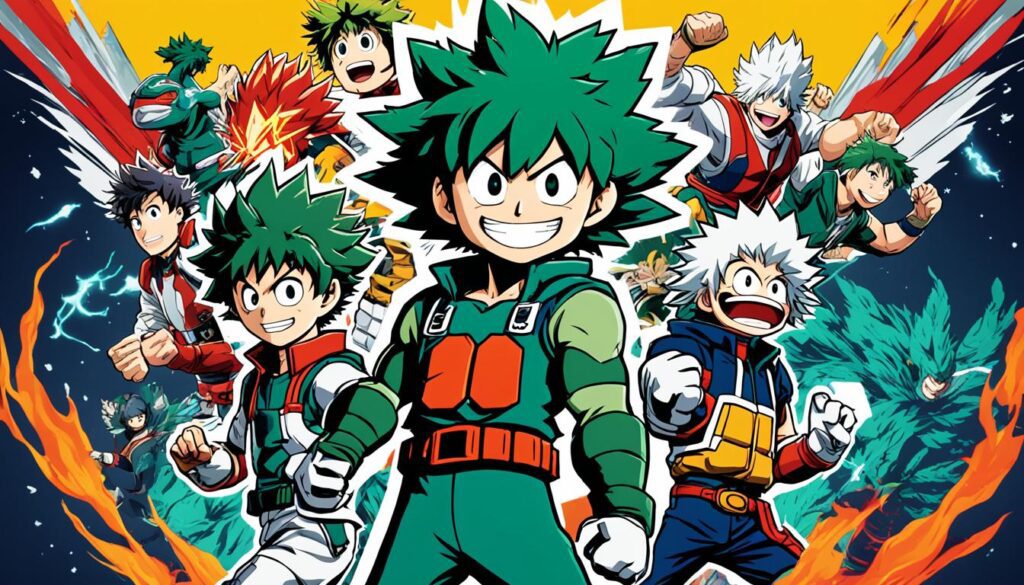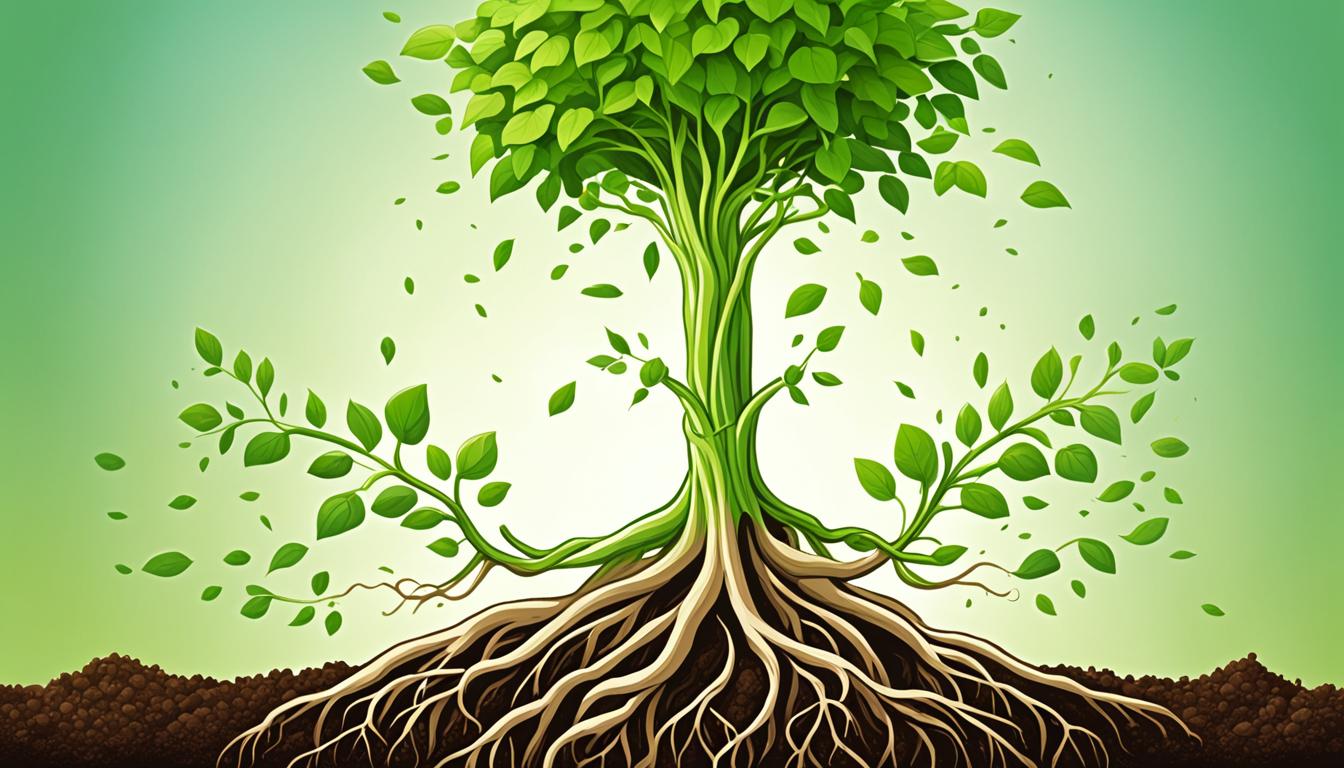Welcome to our guide on how to say “Deku” in Japanese! In this article, we’ll dive into the meaning, grammar, pronunciation, and cultural context of this fascinating term. Whether you’re a fan of anime, interested in Japanese culture, or simply curious about languages, this guide will provide you with valuable insights.
Let’s start by exploring the meaning and grammar of “Deku” in Japanese. Understanding the cultural origins and usage of this term will allow you to appreciate its nuances and significance.
The Traditional Origins of Deku
In its traditional context, “Deku” holds a significant place in Traditional Japanese culture. It refers to small wooden figures that are used in religious ceremonies throughout Japan. These wooden puppets have a deep-rooted history and are emblematic of cultural festivals and traditional performances.
The use of wooden puppets in Japan dates back centuries and reflects the country’s appreciation for craftsmanship and artistry. These intricate figures are meticulously carved and painted, showcasing the skills and dedication of the artisans who create them. The puppets are often adorned with traditional costumes and accessories, adding to their visual appeal.
Cultural festivals and traditional performances provide a platform for these wooden puppets to come to life. During these events, puppeteers skillfully manipulate the puppets, bringing them to life through intricate movements and gestures. The performances often depict tales of folklore, mythology, and historical events, captivating audiences and preserving Japan’s cultural heritage.
The traditional origins of “Deku” reflect the rich cultural heritage of Japan. These wooden puppets serve as a testament to the country’s traditions and values, showcasing the artistry, craftsmanship, and storytelling that have been passed down through generations. They are a captivating and integral part of Japan’s cultural tapestry, continuing to inspire and entertain audiences to this day.
The Evolution of Deku in Popular Culture

The term “Deku” has undergone a remarkable evolution within popular culture. Originally, it held a negative connotation as a slang term, often used as a derogatory term to imply someone is “good for nothing.” However, the anime series “My Hero Academia” has played a pivotal role in reshaping the perception of the term, transforming it into a symbol of hope and resilience.
Throughout the series, the main character, Izuku Midoriya, affectionately embraces the nickname “Deku” given to him by his childhood friend, Katsuki Bakugo. Despite its original negative connotation, Izuku reframes the term and uses it as a source of empowerment and motivation. He embodies the positive qualities associated with the term, showcasing his unwavering determination, bravery, and willingness to protect others.
This transformation of the term “Deku” within the context of “My Hero Academia” exemplifies the power of storytelling in reshaping narratives and redefining cultural meanings. By reclaiming and positively embodying the nickname, Izuku Midoriya challenges the derogatory connotations attached to it, illustrating the possibility of personal growth and transformation.
Exploring the Japanese Language Origins
To understand the true meaning of the term “Deku” in Japanese, we delve into the language and symbolism behind it. The term “Deku” is written using two kanji symbols: “木” and “偶”. Let’s explore their meanings:
| Kanji Symbol | Meaning |
|---|---|
| 木 | “Tree” or “Wood” |
| 偶 | “Puppet” |
The combination of these kanji characters creates the term “Deku”, which carries composite meanings. The kanji symbol “木” represents the essence of “tree” or “wood”, symbolizing the natural world and its connection to life and growth. On the other hand, “偶” represents “puppet”, embodying the concept of inanimate objects brought to life through human interaction.
The pronunciation of “Deku” can vary depending on the context. In the case of the character Izuku Midoriya, the first name is read as “Deku” despite not being pronounced that way. This play on words adds depth to the character’s name and reflects the rich nuances and intricacies of the Japanese language.
Deku in Pop Culture and Beyond
The term “Deku” has also made its way into various forms of pop culture beyond “My Hero Academia.” It is referenced in popular Japanese video games, such as “The Legend of Zelda,” where it represents wooden doll-like characters that the players encounter during their adventures.
Japanese musicians have also incorporated the term “Deku” into their lyrics, showcasing the versatility and creativity of the Japanese language. The term adds a unique and culturally relevant element to their music, resonating with fans who appreciate the fusion of traditional and modern influences.
Furthermore, anime fans have embraced the term “Deku” and its symbolic meanings in their online personas and cosplay. It has become a way for fans to express their love for Japanese animation, its characters, and the values they represent. By embodying the spirit of “Deku,” anime fans celebrate perseverance, personal growth, and the power of the underdog.
The Multifaceted Meaning of Deku
The term “Deku” carries a multifaceted meaning that goes beyond its literal translation. It encompasses the rich cultural traditions of Japan, particularly in relation to traditional wooden puppets. These puppets have long been a cultural phenomenon, representing the artistry and craftsmanship of Japanese culture.
In contemporary contexts, “Deku” has taken on slang connotations, often used to describe someone as “useless” or “good for nothing.” However, in popular culture, particularly in the anime series “My Hero Academia,” the term has been redefined and transformed into a symbol of resilience and empowerment. The character Izuku Midoriya, who embraces the nickname “Deku,” embodies the nuanced meaning behind the term, demonstrating personal growth and the ability to overcome obstacles.
Through its cultural symbolism and evolving interpretations, “Deku” represents the power of language and storytelling in shaping perceptions. It showcases the capacity for individuals to embrace and transform labels, turning them into sources of strength and inspiration. The term serves as a reminder of the inherent potential within each person to rise above limitations and strive for greatness.



